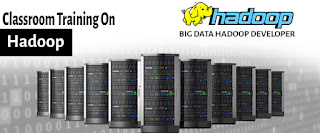Big Data analysis is the second hottest skill for 2016. Do you need a bigger reason for adding this skill in your resume?
What are the key Big Data skills that employers looks for while hiring?
Big Data skills are required almost everywhere. The job entails collecting, warehousing, analysing and using data to make decision. The most demanded skills include:
* Knowledge of various programming languages
* Knowledge of statistics or mathematical modeling
* Understanding of SQL and modeling tools like SAS and SPSS.
Nowadays ‘R’ has become a necessary skill analyse data. The open source community around ‘R’ is growing fast. ‘R’ is usable for data manipulation and analysis. Organisations using data science demand the following:
*Python programming abilities.
* Understanding of deep learning libraries.
* Knowledge of big data tools and infrastructure.
* Knowledge in data visualisation.
* Knowledge of business intelligence platforms.
* Knowledge of upcoming data systems like Presto, Kognito and MemSQL.
* Soft skills like good communication and general excitement about working with data.
* Knowledge of various programming languages
* Knowledge of statistics or mathematical modeling
* Understanding of SQL and modeling tools like SAS and SPSS.
Nowadays ‘R’ has become a necessary skill analyse data. The open source community around ‘R’ is growing fast. ‘R’ is usable for data manipulation and analysis. Organisations using data science demand the following:
*Python programming abilities.
* Understanding of deep learning libraries.
* Knowledge of big data tools and infrastructure.
* Knowledge in data visualisation.
* Knowledge of business intelligence platforms.
* Knowledge of upcoming data systems like Presto, Kognito and MemSQL.
* Soft skills like good communication and general excitement about working with data.
How do you see the demand for Big Data analytics professionals in India in 2016?
As businesses become data driven, the need to derive insights from data will also increase. This will lead to increase in demand for professionals working in Big Data analytics. Gartner has estimated the business intelligence market to reach $213.8 million in 2017. This would be an 18.6 per cent increase over 2015 spending.
India is among top 10 Big Data analytics markets in the world. By 2025, this sector is likely to grow eight folds to $16 billion in India. Hence, the demand for skilled Big Data analytics professionals will grow exponentially. Businesses are hiring experts in data storage, retrieval and analysis aggressively. Clearly, business intelligence will continue to be one of the fastest-moving areas.
What are the five data mining techniques that Big Data analyst should keep handy?
Data mining techniques help simplify and summarise data, to understand and derive conclusions. One can get detailed analysis about specific cases/instances basis the trends, patterns or correlations. This information can help to increase revenue, reduce cost or both.
The key data mining techniques are classification, clustering, prediction, association rule and sequence or path analysis. Companies are using data mining with statistics, pattern recognition and other tools. This helps them gain insights about their customers, solve business problems and take informed business decisions.
Who all can become Big Data analysts?
This job requires the ability of problem solving. This involves defining problem, testing hypothesis, drawing out relevant data and analysing it. This leads to insights which help address problems. So, it is a combination of analysis, creativity, business knowledge, mathematics, statistics and communication skills.
Understanding of computer science, querying languages, scripting languages, statistical languages and excel are essential. Along with skills, an essential character trait for this job is ‘curiosity’. A person who seeks to understand through questions, has this quality. He can fetch data from different locations and amalgamate skills from various domains to get insights. Anyone with these skills can become a data analyst.
More About Big Data & Hadoop










